Italian motorcycle manufacturer Benelli has branched out into eBike territory and hit the market hard with no less than 19 separate models. The Benelli Achle 29 is a hub-drive electric mountain bike with stylish looks, nice componentry and some 250 watts of pedal-assist power to turn uphills into no-hills and long torturous commutes into something much more manageable for people who don't spray on lycra shorts each morning. Loz Blain is the polar opposite of a granite-calved fitness freak, so he's been commuting on the Achle for the past few weeks to find out what the fuss is all about.
According to the Strava cycling app, my commute is 16.1 km (10 mi) each way. I found this out when I decided to cycle to work at the new Gizmag office one day last week. Brushing the cobwebs off my ancient Diamondback Voyager, I squirted the chain with some WD40 and hit the road.
Fifty-three minutes later, this being my full complement of exercise for the year, I arrived at the office a broken man. Sweaty and bedraggled, with rubbery legs and stinky socks, I was more or less useless for the first half of the day, and spent the second half basically dreading my trip home.
When Urban Moto coincidentally offered me an eBike to test, the timing couldn't have been better. And what a nice looking eBike it is.
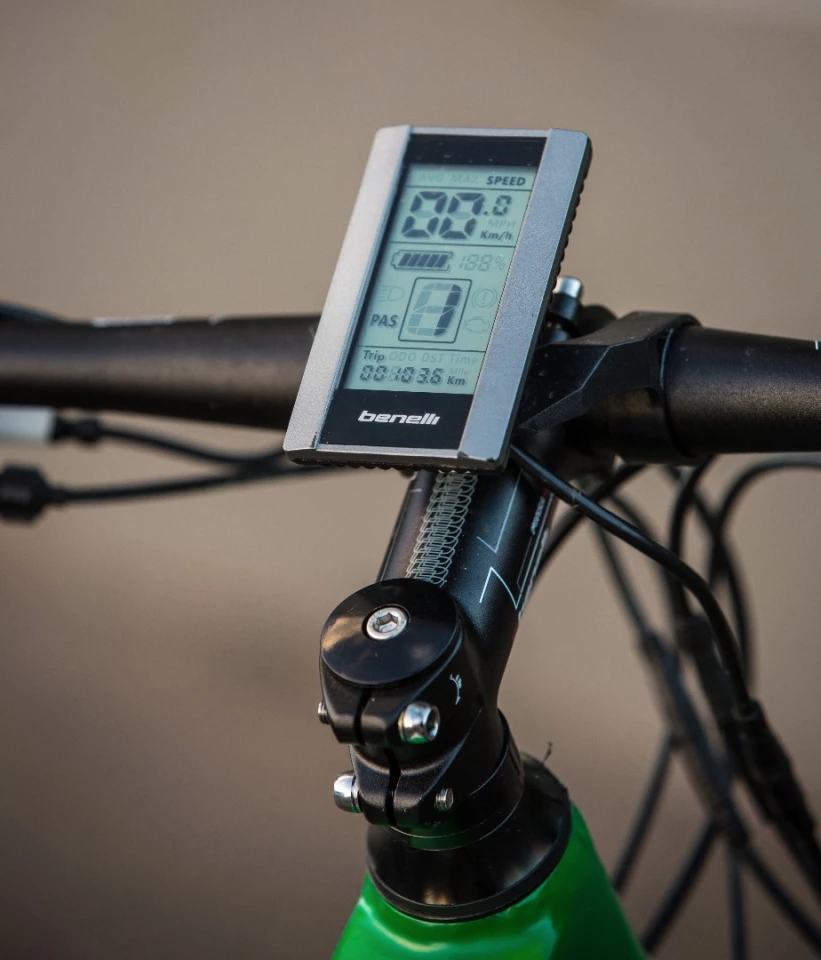
Benelli is an Italian brand I'm more familiar with as an exotic, high performance motorcycle company. Since 2011, a separate team has jumped headlong into electric bicycles, and they're now producing no less than 19 separate models under the same deal as the motorcycles: designed in Italy and manufactured in China under on-site Italian supervision. The theory is they should look as good as any other Euro design, ship for affordable Chinese-ish prices and yet offer European levels of quality assurance.
My test bike is the Benelli Achle, an electric mountain bike with 29-inch wheels, hydraulic disc brakes and a five-level electric pedal assist system. To my eye, this thing looks absolutely fantastic – sleek and classy, with details like the squared-off shape of the frame tubes giving it plenty of close-up flair to make it feel special.
The forks are SR Suntour XCR 29-in jobs offering light cross country/road riding with up to 100 mm (3.9 in) of travel. You can adjust spring preload using a knob on top of the left fork, or lock the suspension altogether to make it a stiffer road bike using a dial on the right fork. Both can be done on the go.
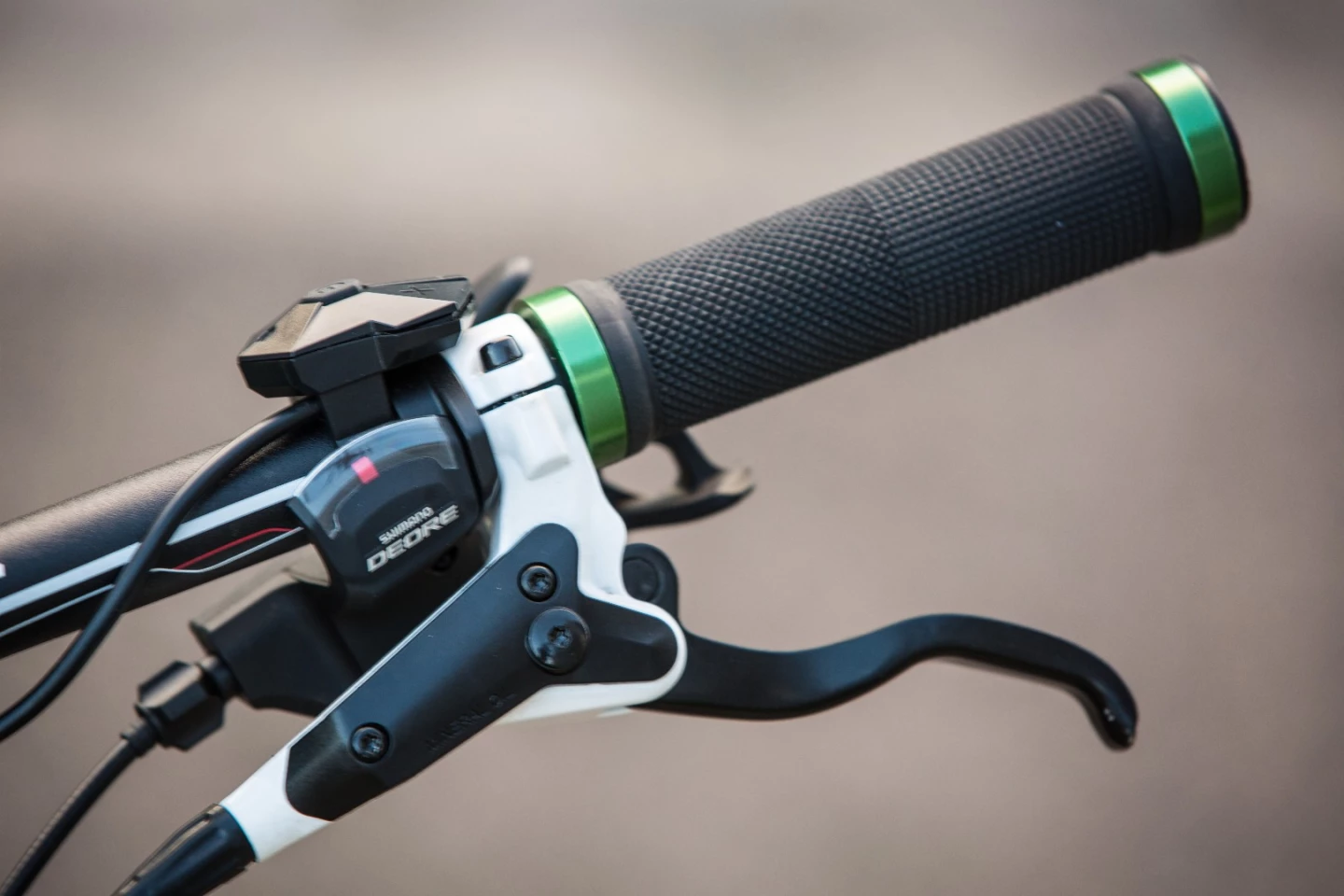
The gearset, crank and shift system is all from the Shimano Deore range, which is a quality mid-range set of running gear designed for cross country and trail riding. There's three speeds at the front cogs, 10 at the back, and you shift them with thumb and index finger triggers through a Rapidfire Plus shift lever system that gives you a simple visual indication of what gear you're in.
The electric motor of our test bike complies with restrictive Australian/European Union eBike laws, offering a maximum of 250 watts of pedal assist, up to a maximum speed of 25 km/h (15.5 mph). For reference, US laws are all over the place on this, but tend to allow between 750 W and 1.5 kW and max speeds between 20 and 30 mph (32 and 48 km/h), making them a lot quicker than much of the rest of the world allows.
Operation is pretty simple: switch the bike on, choose somewhere between level zero and five of pedal assist, and ride it as per normal. The Achle uses a torque sensor on the crank to figure out when you're pedalling, and chips in with whatever level of power you've dialled in.
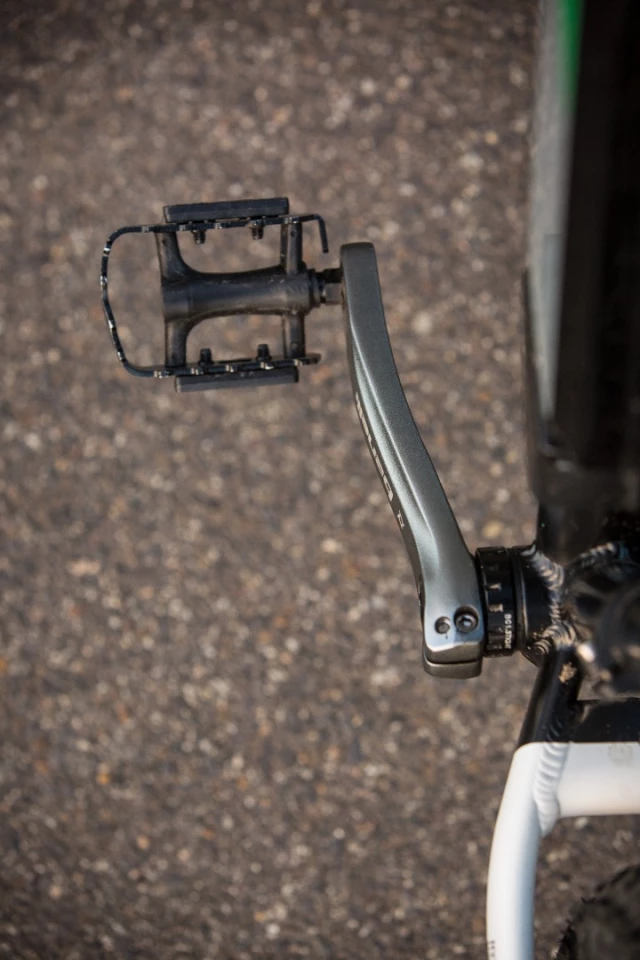
The final effect, for me, is something like a fitness simulator. A monster athlete might manage to put out an average of 500 watts for an hour, a decently fit adult male should be good for around 250, and that's how much you get on top of your own pedalling efforts when you stick the Achle on level 5. It's like having a fit, sporty young fellow clinging to your frame and pedaling for all he's worth... Except he only weighs 10 kg (22 lb) or so. OK, bad analogy.
Uphills are effortless, headwinds are a breeze (ahem), acceleration is easy no matter what the surface you're riding on, and the way the power works you could almost convince yourself you've just got super-strong legs. At least, right up until you hit that magical 25 km/h barrier, where the power cuts out abruptly and you're entirely on your own. In practice this means if I sit at right about 25 km/h, I get aggressively passed by platoons of lycra-sprayed buttocks on the bike path, because the sporty folks frequently tool along at 40 km/h (25 mph) and above on their featherweight road bikes.
The eBike system is pretty simple, but it does take a bit of getting used to; the torque sensor can't read your mind, so it occasionally applies power when you're not expecting it.
I also found myself screwing up gearshifts initially because I was thinking too much about playing with the power levels, but eventually I just ended up leaving the power where it was. You'd have to say there's an automatic transmission somewhere in the future of eBikes that'll make them even more accessible, but at least if you find yourself pointed uphill in a high gear, you've got an extra pair of electric legs to help you get up it.
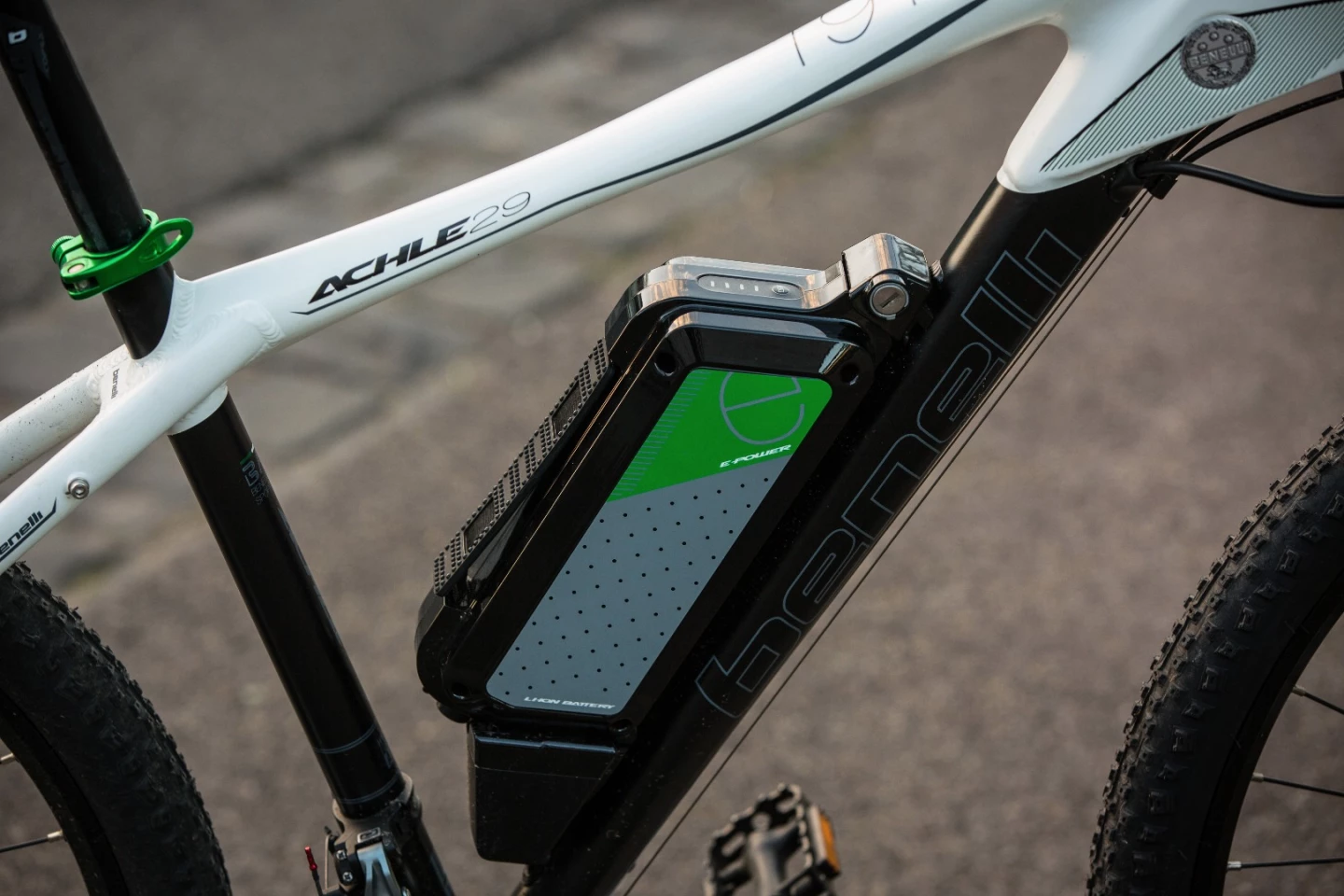
The Benelli ships with a 36-volt, 13-Ah Samsung battery that gives a claimed max range of 100 km (62 mi). In practice, left permanently on full power, it'll get me to work and back (about 33 km/20 mi) and still have just enough juice to get up the kilometer-long hill at the bottom of my street. To squeeze out more range, you'd either use lower power modes, or spend as much time as possible above 25 km/h.
Charging takes between four to six hours, and requires a chunky adapter that you've either got to lug around with you or leave at home or the office and plan ahead. Of course, if you run out of juice, worst case is that you're stuck on a regular bicycle – albeit a heavy one at 20 kg (44 lb).
Commuting time comparison
So what kind of effect does it have on your daily commute? Well, according to Strava, on my regular, ancient, poorly maintained pushbike it takes me about 53 minutes to knock off the 16.1 km (10 mi) between home and work at an average speed of 18.1 km/h (11.2 mph). That's at an almost zero level of fitness, and it felt profoundly traumatic.
On the Benelli Achle, constant level five assistance gives me a final time of 40.5 minutes and an average speed of 23.5 km/h (14.6 mph), and it's an absolute breeze. Everything's upside-down, the hills and rough surfaces are easy and the straights and downhills are where you put in your work, because you're above 25 km/h. I still get to the office feeling fresh, and I don't need to shower for the protection of my colleagues.
Just for fun, since I've been test driving a BMW X1 as well, let's see what the same commute looks like in a car. How's 50 minutes at an average speed of 22 km/h (13.7 mph) during peak hour sound? Kill me. Just kill me.
And of course, on my beloved Speed Triple 1050cc motorcycle splitting through traffic? Twenty-two minutes, averaging 49 km/h (30.4 mph). But it's unfair comparing any other form of transport to a motorcycle, truly these are the steeds of the gods.
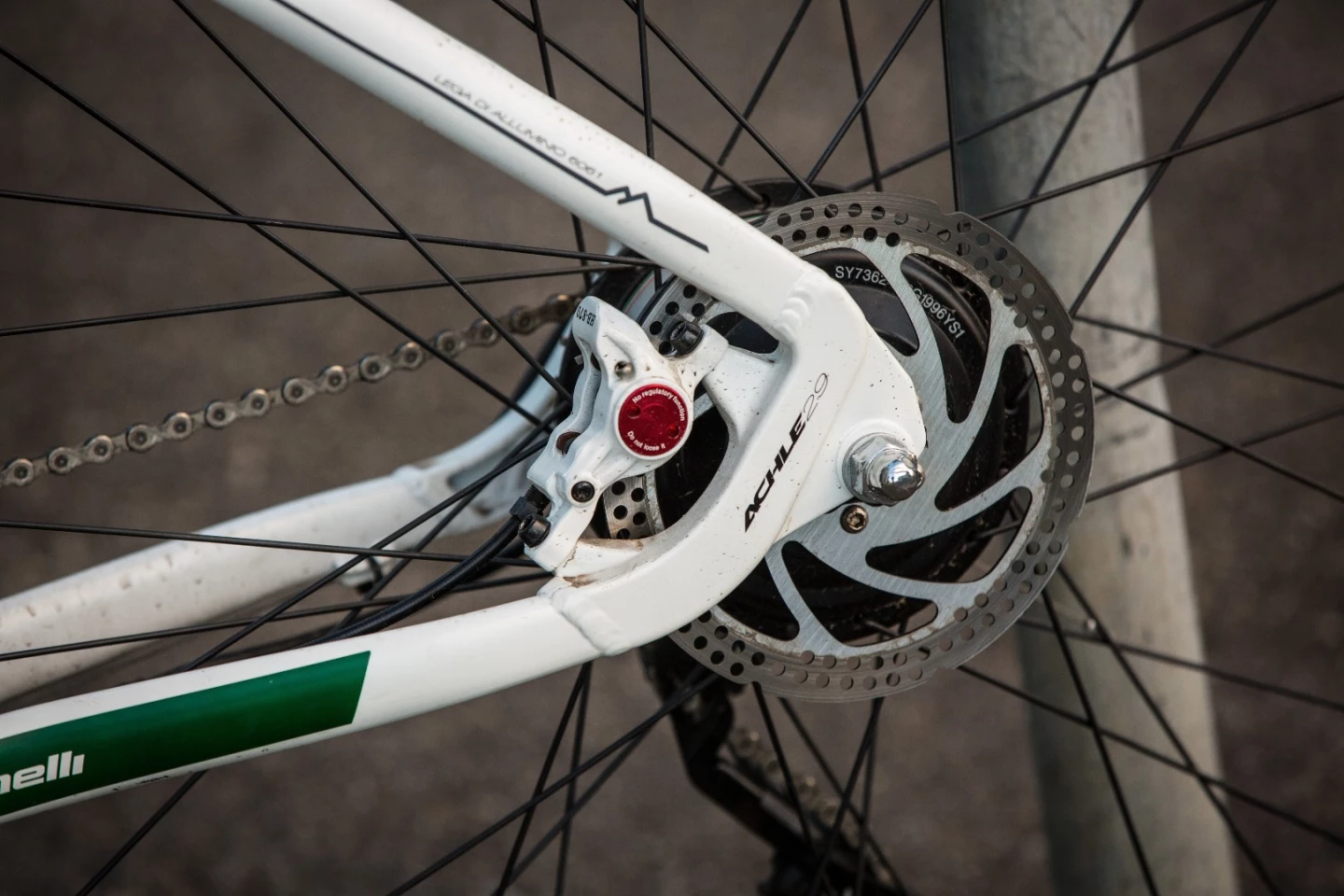
With cars and motorcycles, you've got to factor in registration and insurance, plus fuel costs. eBikes have no rego or insurance to worry about, you can bring them up into the office with you, and fuel costs are near to zero. Plus, you can literally dial in the amount of exercise you feel like doing on a given day, so there's no reason why you can't sweat it up when you feel like it.
Granted, you're probably going to be paying your car rego and insurance anyway, but to my mind, eBikes present a very compelling argument as a commuting option for people who live outside a comfortable cycling distance. They're going bananas in Europe, and I think we'll be seeing a lot more of them in the near future in other markets.
The Benelli Achle retails for AU$2,999 (US$2,160) in Australia, making it expensive when compared to cheapie commuter-focused options that probably offer a similar experience on the ride to work. I didn't do enough off-roading to get the most out of its large wheels and nicely suspended front end, but I did appreciate the large capacity battery, which is nearly 50 percent bigger than the one on the AU$1,999 (US$1,440) Dyson Hardtail. Put simply, you can see where the extra money has gone.
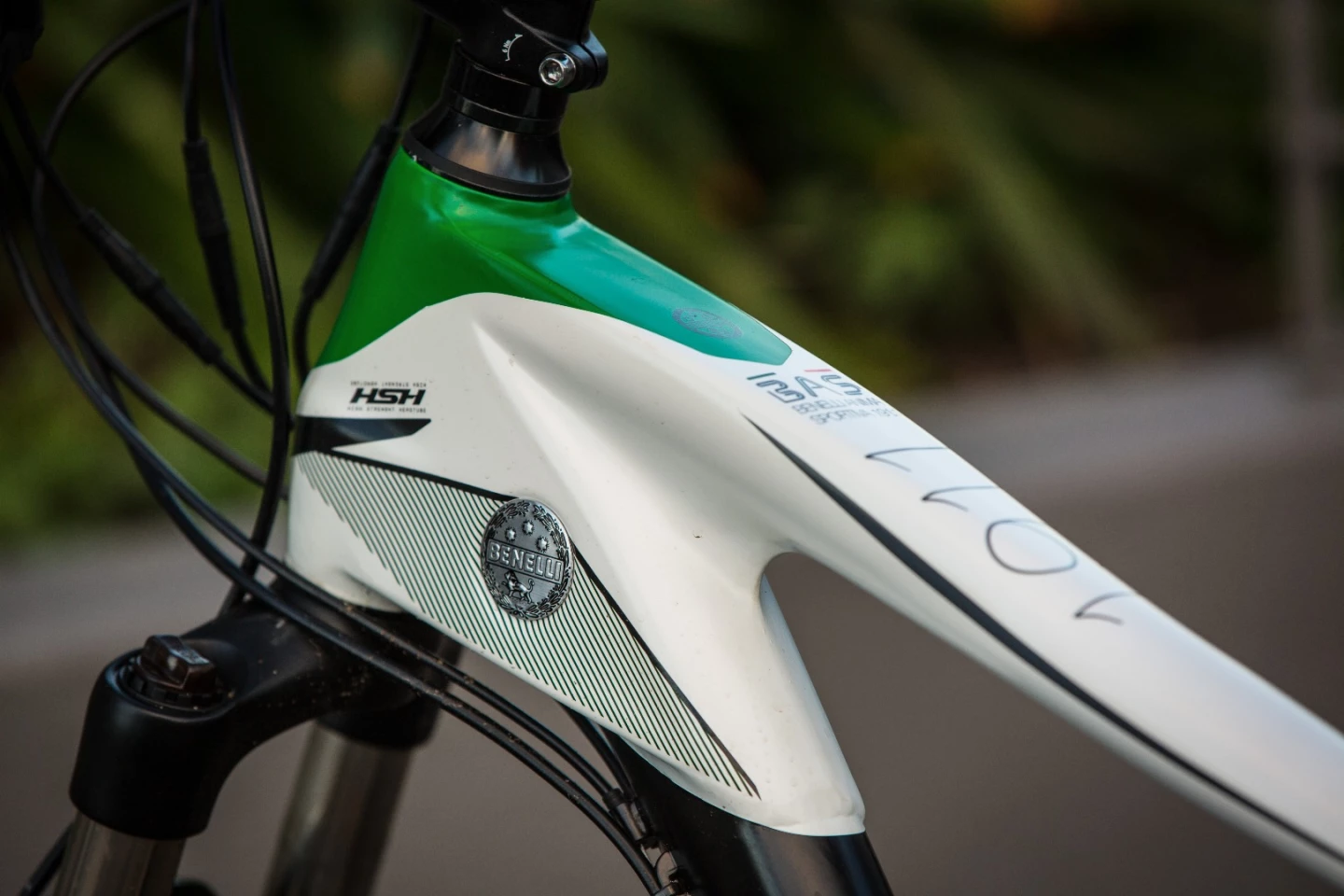
And compared to a similarly specced-out KTM eBike, the Macina Action 29", it looks like a downright bargain. The KTM retails for AU$5,395 (US$3,900). You can spend a ton more on European eBikes if you want something that feels a bit special and offers some off-road capability – two things the Achle handles in spades.
So I've come away thinking this bike, and eBikes in general, are a pretty great way to get around. And if some spandex cowboy mouths off saying that you get no exercise on an eBike, you might choose to point out that with the power off, it's a 20-kg bicycle, which is gonna get you much fitter than tooling around on a ten grand, carbon fiber butt wedge that weighs less than a ham sandwich. If fitness was really the number one priority, Captain Shaveylegs over there would be riding a 30-kg fixie with a backpack full of sand.
Product page: Benelli Achle 29




















